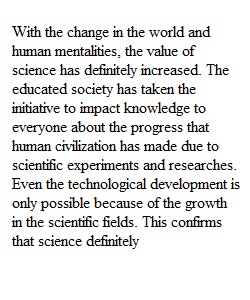


Q Week 2 Journal Although science is essential to understanding our world, it cannot answer all questions for us. There are many questions and problems that require a humanistic approach rather than a scientific one. For example, in the article “Science Has Limits: A Few Things that Science Does Not Do (Links to an external site.),” we learn that science cannot help us answer questions like this one: “Do supernatural entities intervene in human affairs?” Neither does science help us make moral judgments. We must turn to ethics for help in that regard. For this journal reflection, you will explore the possibility that philosophy, ethics, religion, art, or music might be able to address problems science can’t solve. In two to three pages, describe a dilemma that one character faces in Hamlet that requires a humanistic approach to solve, and then, describe how you would respond to that dilemma if you were in that situation. Using specific examples from the drama, explain why no amount of scientific knowledge would suffice to guide the character’s actions, and then, describe how a specific sort of humanistic knowledge (e.g., knowledge gained through ethics, religion, art, etc.) would allow you to respond to that character’s situation. Carefully review the Grading Rubric (Links to an external site.) for the criteria that will be used to evaluate your assignment.
View Related Questions